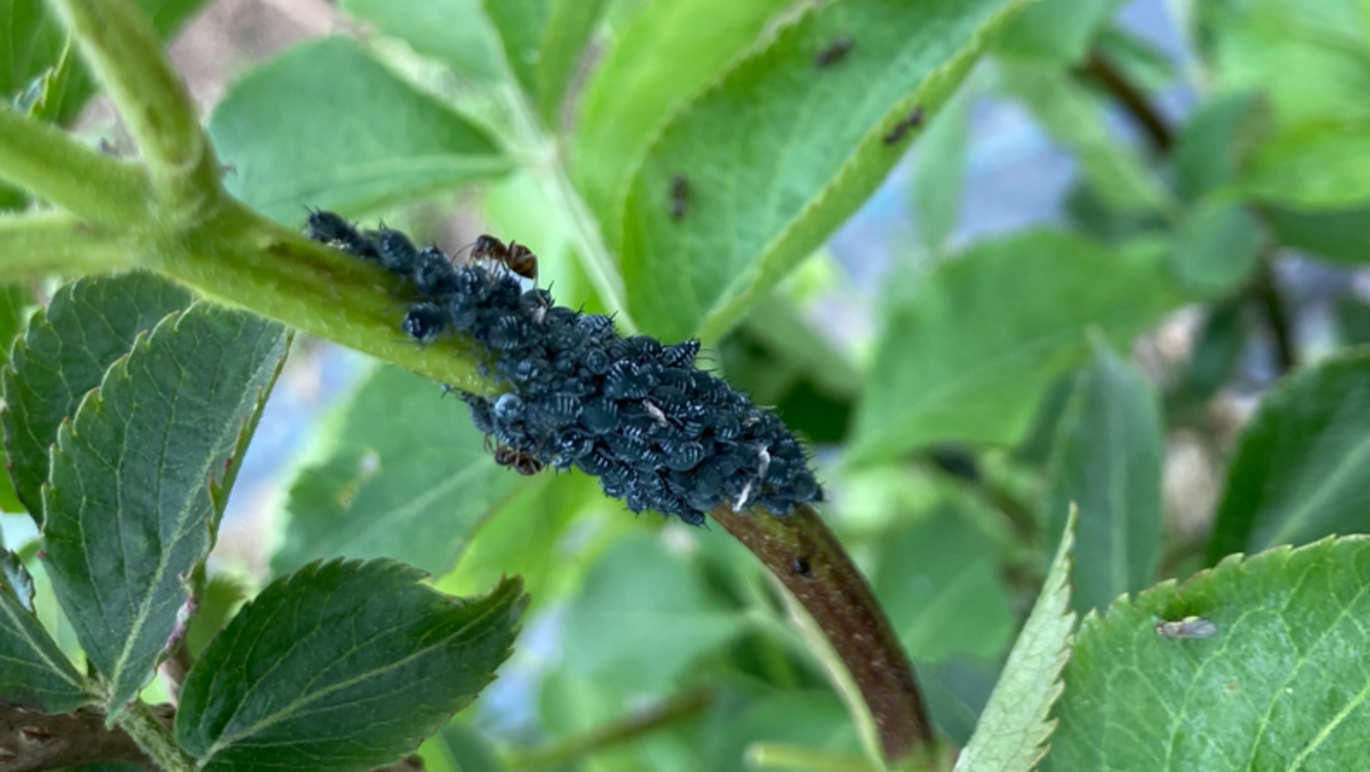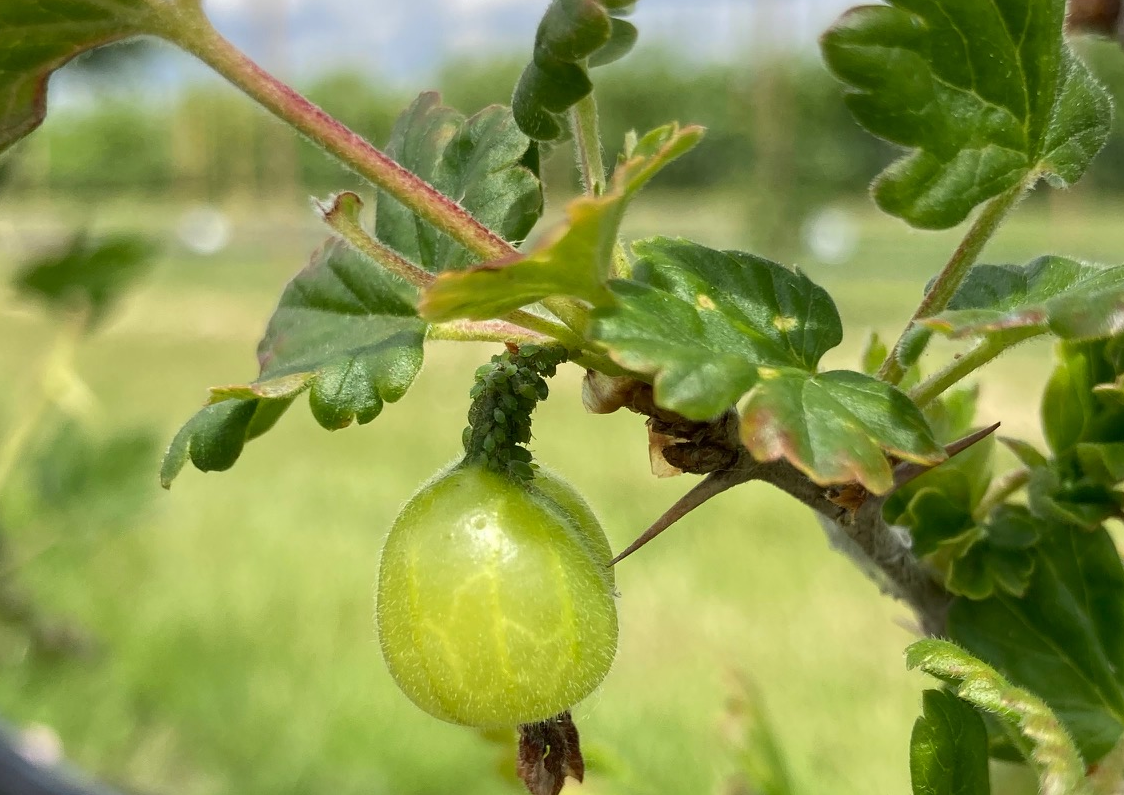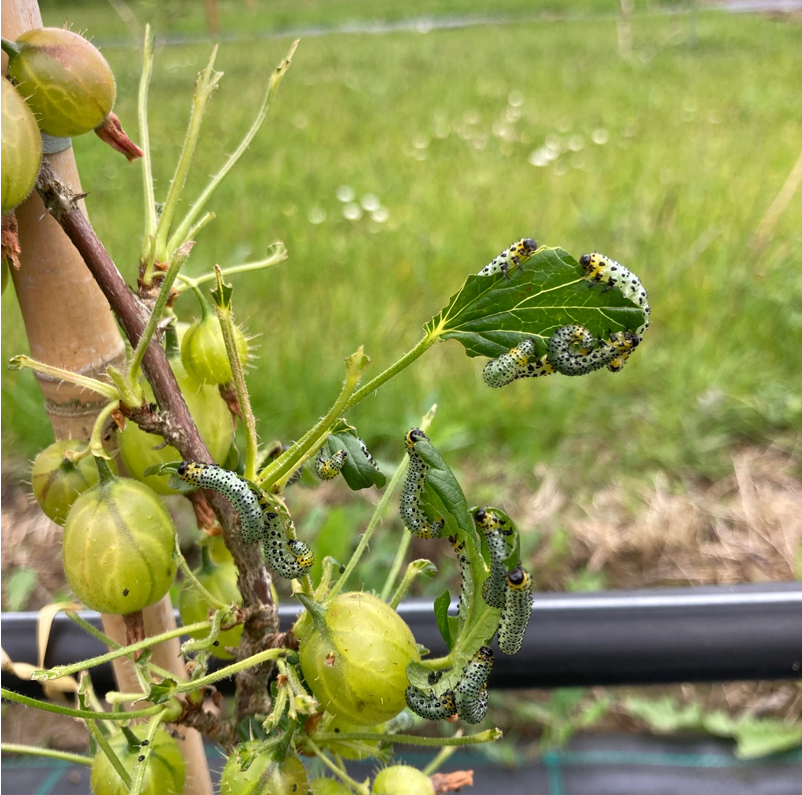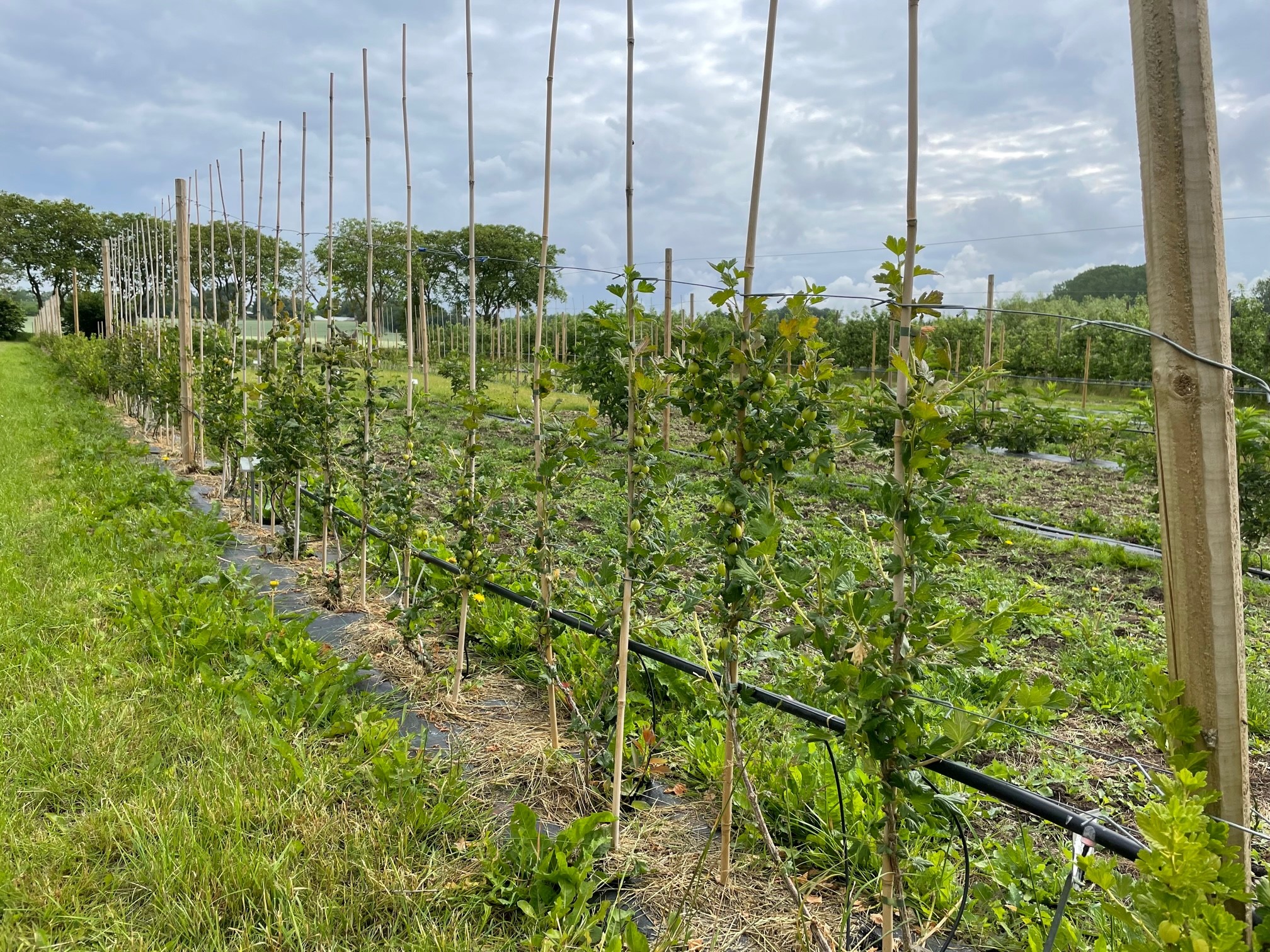New intensive and sustainable methods for organic production of berries
Berries are healthy “superfoods”. However, the Danish area with organic berries is small. University of Copenhagen is partner in the CORE Organic project “ResBerry”, and in Denmark they test novel methods to grow berries in intercropping and with interrow flowerstrips.





Espalier and cutting techniques for high value berries
Espalier and cutting techniques can be used to achieve more narrow rows of bushes with better air and light penetration. This reduces diseases and supports the development of flowers and fruit, leading to large, high-quality berries. Such production has potential as a novel niche for organic berries for fresh consumption.
Intercropping and flower strips
Agricultural intensification has reduced biodiversity and abundance of beneficials in farm surroundings. Interrow perennial flowerstrips provide food (pollen, nectar and alternative prey), habitat and overwintering sites for arthropods as well as increased biodiversity. The composition of the flower strip should be selected to support many different species and functions of beneficial arthropods throughout the season, building functional biodiversity (example of function: predators of different life stages of pests). Intercropping can also serve to augment beneficials. These diversification strategies are based on progress in cultivation technology and biological knowledge.
New methods
More narrow rows of berry bushes is expected to make it easier to find space for interrow flowerstrips and combining the benefits of the two methods is something that has not been tested previously. At the Pometum in Taastrup, a plot with gooseberries and elderberries in a mono- and intercropping design was planted in 2019 and espaliered in 2022. Next to it, a plot with raspberries, of the new variety Lewis, will be planted out spring 2023 in the ‘Easypot’ system, new for berry bushes. The pots allow smaller roots to pass. The pots are placed in mypex with holes for each pot to control weeds.
In 2023 and 2024 pest infestation will be monitored with a focus on aphids which are found in all three crops. Beneficials, biodiversity and how the techniques alone and in combination affect the bushes growth and health will be recorded, as well as yield and quality of the berries. In 2024 also selected trap crops for control of pests, like the spotted wing drosophila, will be assessed.
Creating a niche for Danish berries
The ResBerry project will demonstrate the new techniques for organic berry producers as a method to produce organic high quality, high value berries. This is a niche important for Danish berry growers, as they cannot compete with world market standard produce. Currently the fresh berry niche is only developed for strawberries. The methods are ecologically sustainable, they can also be used by conventional producers, and can be an important help in conversion to organic production, as there will be less need for direct control.
The ResBerry project partners will also do research in other berry crops, and different types of companion planting. In addition, research will be done on the soil microbiome as affected by for example cover crops, and the use of bioactive compounds and microorganisms such as insect pathogenic fungi, and microbiological control of grey mould by ’entomovectoring’. All these methods are new and innovative and will also be shared through the project. ResBerry = (Resilient organic berry cropping systems through enhanced biodiversity and innovative management strategies) |
Relevant links:
ResBerry homepage: https://projects.au.dk/coreorganiccofund/2021-call-projects/resberry
The Pometum: https://pometet.dk/
Authors info
Lene Sigsgaard, University of Copenhagen, Department of Plant and Environmental Sciences, Thorvaldsensvej 40, DK-1871 les@plen.ku.dk, https://plen.ku.dk/ / Norwegian University of Life Sciences, Department of Plant Sciences, PO Box 5003, Ås, Norway lene.sigsgaard@nmbu.no, https://www.nmbu.no/en/faculty/biovit
Stine Kramer Jacobsen University of Copenhagen, Department of Plant and Environmental Sciences, Thorvaldsensvej 40, DK-1871 stikra@plen.ku.dk, https://plen.ku.dk/
Torben Bo Toldam Andersen, University of Copenhagen, Department of Plant and Environmental Sciences, Thorvaldsensvej 40, DK-1871 tbta@plen.ku.dk, https://plen.ku.dk/
Editor: Karin Ullven, EPOK / Design: Christine Dilling, ICROFS
